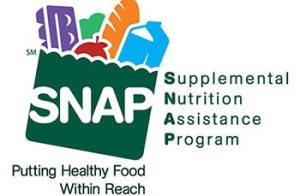<p>By Jennifer Hatcher, Chief Public Policy Officer and SVP, Government and Member Relations, FMI</p><img src="https://www.fmi.org/images/default-source/blog-images/white_house_front.tmb-large-350-.jpg?Culture=en&sfvrsn=67b8bb2e_1" style="margin-bottom:10px;float:right;margin-left:10px;" class="-align-right" alt="Front of the White House with Fountain" sf-size="100" /><p>Washington’s climate is dominated by changing seasons. There can be no overstatement of the level of change and constant motion that we have seen in the first 85 days of the Trump administration and the Republican trifecta on Capitol Hill. Executive orders, DOGE cuts of the magnitude to reshape agency operations and other actions on the tariff and trade front have reshaped policy and the dialogue. All the while, legislative activity in Congress has taken more of a back seat due to the challenge of achieving widespread agreement of the GOP’s razor-thin majority in the House. </p><p>That said, Congress recently advanced the budget reconciliation process with both House and Senate passage of the budget resolution, which will set the stage for developing a legislative package to address many of President Trump’s priorities, including border security, defense spending, raising the debt limit and tax reform. While this marks a significant step forward, it serves as the beginning of a process that is expected to take several weeks/months for lawmakers to develop, negotiate and vote on the substance of the reconciliation package with narrow majorities in both the House and Senate.</p><p>Developments surrounding the ongoing tariff situation continue to change regularly. Earlier this month, country-specific reciprocal tariffs briefly went into place only to be largely suspended the next day for a 90-day pause. The United States and China continue to up the ante in what appears to be a burgeoning trade war. Even with the potential 90-day suspension, companies can expect to see a continued period of uncertainty in the weeks ahead as negotiations continue between the U.S. and countries across the globe.</p><p>FMI’s recent GR Reports contain updates on our advocacy successes on federal issues of importance to the food industry including an announcement by the new team at FDA of a 30-month extension of the time provided under the complex FDA Food Traceability Rule; and an intervention by the Department of Justice and then the Environmental Protection Administration to provide additional compliance time for the transition of technology used in supermarket refrigeration systems from an HFC system to a natural refrigerant. We are advocating for yet another change to the EPA rules with regard to the management of those phased-out HFC refrigerants prior to the transition date. </p><p>If you are not already engaged, we welcome you! And if you are not receiving our federal, state and local newsletters, you can <a href="https://www.fmi.org/get-involved/newsletters">sign up here</a>.<span style="background-color:transparent;color:inherit;font-family:inherit;font-size:inherit;text-align:inherit;text-transform:inherit;word-spacing:normal;caret-color:auto;white-space:inherit;"> </span><span style="background-color:transparent;color:inherit;font-family:inherit;text-align:inherit;text-transform:inherit;word-spacing:normal;caret-color:auto;white-space:inherit;font-size:inherit;"></span></p><h5>State Update</h5><p><span style="background-color:transparent;color:inherit;font-family:inherit;font-size:inherit;text-align:inherit;text-transform:inherit;word-spacing:normal;caret-color:auto;white-space:inherit;">The level of fast-paced activity and change extends to the states and especially those with Governors aligned with President Trump and legislatures wrapping up sessions. </span><a href="https://www.fmi.org/government-affairs/state-affairs" style="font-family:inherit;font-size:inherit;text-align:inherit;text-transform:inherit;word-spacing:normal;white-space:inherit;">FMI State Affairs</a><span style="background-color:transparent;color:inherit;font-family:inherit;font-size:inherit;text-align:inherit;text-transform:inherit;word-spacing:normal;caret-color:auto;white-space:inherit;"> is actively monitoring 127 bills in 34 states on food ingredient labeling and bans alone. This also includes legislation to prohibit certain ingredients in school meals and legislation in four States (IL, MD, PA, VA) that requires testing and labeling of baby food, identical to California’s law.</span></p><p><span style="background-color:transparent;color:inherit;font-family:inherit;font-size:inherit;text-align:inherit;text-transform:inherit;word-spacing:normal;caret-color:auto;white-space:inherit;">Bills of note are:</span></p><ul><li>AR <a href="https://www.arkleg.state.ar.us/Bills/Detail?id=SB9&ddBienniumSession=2025%2F2025R" target="_blank">SB 9</a>, as sent to the governor on April 10, disallows the sale of a food product that contains (1) Potassium bromate, also known as CAS no. 7758-01-2; (2) Propylparaben, also known as CAS no. 94-13-3; or 2 (3) Erythrosine or Red No. 3, also known as CAS no. 16423-68-0, effective January 1, 2027. </li><li>IL <a href="https://ilga.gov/legislation/BillStatus.asp?DocNum=93&GAID=18&DocTypeID=SB&LegId=157211&SessionID=114&GA=104" target="_blank">SB 93</a>, as passed the Senate and amended in the House, disallows the sale of potassium bromate and propylparaben beginning January 1, 2027.</li><li>LA <a href="https://legis.la.gov/Legis/BillInfo.aspx?i=247976" target="_blank">SB 14</a> as prefiled on March 18, contains a SNAP food waiver restricting soft drinks; creates a warning label and disclosure on the label for food that contains any of 51 listed artificial dyes, chemical additives, and other specified ingredients (including Carrageenan,) and bans the serving of ultra-processed foods, among other things. </li><li>TX <a href="https://capitol.texas.gov/BillLookup/History.aspx?LegSess=89R&Bill=SB25" target="_blank">SB 25</a> as passed the Senate, is similar to Louisiana’s SB 14 in terms of the warning label and the disclosure of ingredients, but does not include Carrageenan.</li><li>WV <a href="https://www.wvlegislature.gov/Bill_Status/Bills_history.cfm?input=2354&year=2025&sessiontype=RS&btype=bill" target="_blank">HB 2354</a> as enacted, determines that on January 1, 2028, any food containing any added substance or ingredients that are poisonous or injurious to the health, including butylated hydroxyanisole, propylparaben, Red Dye 3, Red Dye 40, Yellow Dye 5, Yellow Dye 6, Blue Dye 1, Blue Dye 2, and Green Dye 3 is adulterated. Effective August 1, 2025, Red Dye 3, Red Dye 40, Yellow Dye 5, Yellow Dye 6, Blue Dye 1, Blue Dye 2, and Green Dye 3 shall be deemed unsafe and shall not be permitted as an ingredient in any meal served in a school nutrition program.</li></ul><ul></ul><h5><span style="background-color:transparent;color:inherit;font-family:inherit;font-size:inherit;text-align:inherit;text-transform:inherit;word-spacing:normal;caret-color:auto;white-space:inherit;">FMI Priority Issues</span></h5><p>FMI’s board of directors identified and voted on the industry’s key public policy priorities for 2025 and beyond. FMI welcomed the 119<sup>th</sup> Congress with a <a href="https://www.fmi.org/docs/default-source/gr/fmi-letter-to-119th-congress-public-policy-priorities-022425.pdf?sfvrsn=8e70331f_1">letter</a> highlighting these priorities and providing additional details. The alphabetical list of issues below is meant to be forward-looking to anticipate the needs of the industry for the coming months, but FMI continues to reevaluate our priorities on a regular basis as developments occur.</p><ul><li>Economy: Inflation/Food Prices</li><li>Food Assistance Programs</li><li>Food Safety: Traceability</li><li>Labor: Workforce Supply and Regulatory Enforcement</li><li>Nutrition & Ingredient Related Policies</li><li>Organized Retail Crime, Fraud & Threats</li><li>Payments/Swipe Fee Reform</li><li>Pharmacy/PBM Reform</li><li>Sustainability & Food Waste</li><li>Tax Reform</li><li>Trade & Tariffs</li></ul><p><span style="background-color:transparent;color:inherit;font-family:inherit;font-size:inherit;text-align:inherit;text-transform:inherit;word-spacing:normal;caret-color:auto;white-space:inherit;">While these priorities provide a strategic framework for our advocacy efforts, they only tell part of the story. FMI remains actively engaged on multiple other fronts outside of the scope of these issues to tell your stories and help our member companies navigate the always-changing regulatory, legal, and compliance landscape.</span></p>
[#item_full_content]






